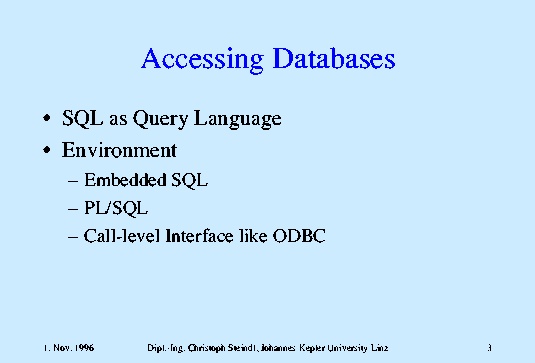Is Interoperability Achievable with ODBC?: Slide 3 of 10.
Click slide for next, or goto previous, first, last slides or back to thumbnail layout.

Click slide for next, or goto previous, or back to thumbnail layout.
Sequel is a widely accepted and widely used standard for a database query language.
Depending on the degree of integration of Sequel into the application there are at least three different ways to write Sequel statements in your application: Embedded Sequel embeds Sequel statements directly into the application code. A pre-compiler will translate these statements into the host language.
A Module Language like PL/Sequel enhances Sequel with control flow statements and facilitates the building of executable units.
The third possibility is an interface where database functionality is directly called via function calls. This is how it is done in ODBC.
The advantage of direct invocation and ODBC is that only the functionality of the library and the way how an application calls the library functions have to be defined. The calls are then forwarded to the database (server) which can even run on a different machine connected with the client via a network. Furthermore it is not necessary that the application knows the database in advance (as it is with Embedded Sequel). The result is a gain in database independence and interoperability.
